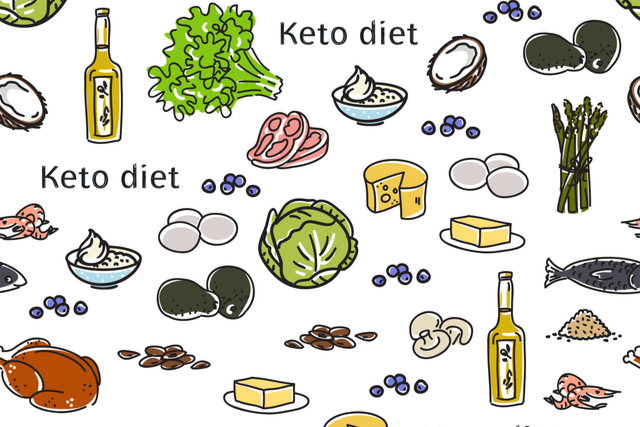The ketogenic diet, a very low-carb, high-fat diet, goes against conventional nutritional advice. But there are good reasons for its popularity today. Being in a state of ketosis provides many health benefits, from weight loss without counting calories to neurological and cardiovascular benefits and lower disease risk factors including cancer. Ketosis, the state of fat-driven metabolism has been a normal process throughout human evolution. Ketosis enabled people to survive during famine and starvation.
|
Those on the standard modern diet readily benefit from a low-carb, whole-food, paleo diet. For patients with insulin resistance, like those with PCOS, I recommend the ketogenic diet to improve fertility. I’ve found ketosis beneficial for conception and maintaining a complication-free pregnancy. It is also conducive to the birth of a healthy baby.
While many women are following a ketogenic diet during their preconception period, the continuation of this diet during pregnancy has become a hotly debated, controversial topic.
Misconceptions about Ketosis During Pregnancy
When people say ketosis is unsafe in pregnancy, they reference starvation ketosis or diabetic ketoacidosis (DKA) – very different from nutritional ketosis.
| Nutritional Ketosis | Starvation Ketosis | Diabetic Ketoacidosis |
|
| safe | unsafe | Unsafe | |
| Blood glucose | normal | Normal or low | High |
| Urine ketones | Present | present | Present |
| Blood ketones | Absent or trace | low | Very high |
| Blood pH | normal | acidic | Extremely acidic |
- In nutritional ketosis, the body primarily uses fat for energy, with healthy ketone levels of 1-3mmol/L. Pregnant women often move in and out of it, which is perfectly normal and preferably a beneficial state.
- Starvation ketosis happens when the maternal diet lacks nutrition and calories, burning mainly body fat for fuel.
- Diabetic ketoacidosis (DKA) is when ketones in the blood reach unhealthy, toxic levels of 10 mmol/L + and blood sugar levels are 3 times normal. It is a very dangerous metabolic state seen in people with diabetes where insulin or diet isn’t properly managed. Ketoacidosis should be avoided by all pregnant women as it is harmful to the brain development of the foetus.
Experts still believe ketones are toxic by-products, unsafe in pregnancy. Finding ketones in urine is presumed dangerous, as ketones may adversely affect fetal brain development. Many advise against low-carb diets in pregnancy and breastfeeding due to insufficient evidence on fetal/newborn effects. However, urine ketones don’t correlate with blood levels; only blood ketones are clinically relevant.
Ketosis is the natural state during pregnancy
Not only is ketosis natural in pregnancy, but pregnancy may favour it. Research has looked at blood sugar levels in normal, healthy pregnant women and found that blood sugar levels consistently trend 20% lower than blood sugar in non-pregnant women. As part of the adaptation to pregnancy, there is a decrease in maternal blood glucose concentration, a development of ‘physiological insulin resistance’ and a tendency to develop ketosis. Maternal ketones increase 2-3 fold in pregnancy, with gradually increasing insulin resistance, making ketosis likely.After overnight fasting, healthy pregnant women readily produce treble the amount of ketones compared to women who are not pregnant.
- Early pregnancy is an anabolic period programmed to build fat stores with lower insulin resistance. When pregnant women unintentionally fast from morning sickness, they move into and out of nutritional ketosis temporarily.
- Late pregnancy is a catabolic period with higher insulin resistance. This period is programmed to transfer nutrients to the foetus by mobilizing maternal fat. Women are more prone to ketosis during this period. Contrary to conventional wisdom, higher ketone levels benefit both mother and foetus.
- In late pregnancy, maternal energy comes solely from burning fat. Higher ketones assist brain development. 30% of fetal brain energy comes from ketones. After birth, healthy infants stay in ketosis for at least the first month of life.
It is safe to eat a ketogenic diet during pregnancy. Ancient women were likely ketotic when pregnant.
I recommend women start the diet at least two to three months before trying to conceive so that the mother is fat-adapted before becoming pregnant.
Dr Ryu’s articles on Ketosis, Ketogenic diet
Cholesterol, the critical molecule for Fertility
Curse of vegetable oil: loss of cellular function, loss of family lineage





